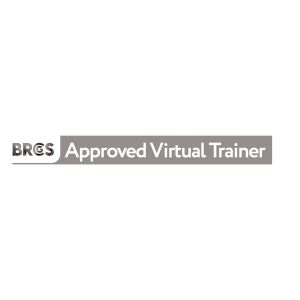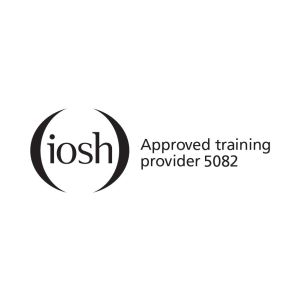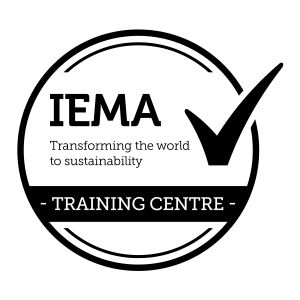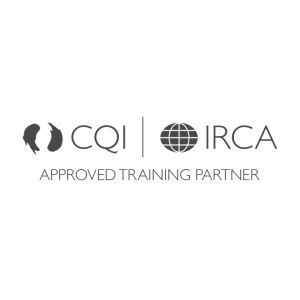The IEMA Environmental Sustainability Skills for the Workforce course is a one-day awareness course developed to upskill all workers with an elemental understanding of environmental sustainability principles. Relevant to any job role across all sectors this course will help to embed environmental cultural change into an organisation. Those businesses seeking to refresh environmental management within their business and looking for true value from ISO 14001, achieve their environmental goals and actively change their culture will value the support this course delivers. The course covers the main environmental risks and opportunities facing organisations; the importance of resource efficiency; the impacts of pollution, prevention, control and legislation; the impact of transport; and knowing how employees can support environmental sustainability.Duration1 Day, 08.30 – 16.45Who should attend?This course is ideally suited for those working in any job role across all sectors and has no formal entry requirements. It is benchmarked against the Level 2 RQF descriptors. This is an ideal course for those developing into the role of, or existing, designated environmental champions in the workforce.Course objectivesThis course will equip delegates with an understanding of some of the key concepts of sustainability in business and will develop relevant skills to be able to support sustainable development within their own business.Course content Develop an understanding of the main environmental and economic risks and opportunities Develop an understanding of compliance obligations and business drivers for change Develop an understanding of the main potential impacts on environment and sustainability Develop an understanding of how to improve environmental performance What are the benefitsAttendance will enable delegates to: Understand the key concepts and benefits of a sustainable business Support the application and development of sustainability in their own business Be able to promote, build and support sustainability within their business In-House CoursesOffering better value for money, they can be designed to more closely match your specific requirementsStyle of Delivery and Course LeadersOur course leaders have substantial experience in the field of environmental management systems. They are qualified and experienced with extensive practical management experience across a wide range of sectors including manufacturing, finance, pharmaceuticals, local and national government. We have extensive experience working across cultural boundaries, through our work in Europe, Africa, the Middle East, Asia and the Americas.CertificationThe assessment for Environmental Sustainability Skills for the Workforce consists of an online 20 question multiple-choice test. The test is completed through the IEMA assessment portal and candidates are sent a link upon registration to the assessment. Delegates successfully taking the course and passing the course assessment will be awarded an IEMA Sustainable Skills for the Workforce certificate.
Foundation Courses Environmental
With increasing complexity and demands of organisational processes there is a pressing need to ensure operational efficiency never drops. When it does, or where faults occur, it is critical that staff are equipped with the skills to investigate, determine cause(s) of the error and point to a solution. This investigation must be robust and always conducted in a time sensitive environment. Root Cause Analysis is an investigation process within the field of ISO Standards Management Systems such as ISO 9001 (Quality), ISO 14001 (Environmental) and ISO 45001 (Health & Safety) for example. This course will equip delegates with the knowledge, practical methods and skills to use RCA effectively in a variety of fault-finding applications.Duration1 Day, 09.00 – 17.00Who should attend?Routed in industry, RCA techniques are now commonplace in both product and service environments. Those with a responsibility in process efficiency at any level will benefit from understanding a range of proven methodologies used to conduct a robust root cause investigations and analyses to drive change and improve performance.Course contentThis course covers a range of RCA techniques and skills and uses a complex Case Study featuring an organisation which has established an Integrated Management System. The Case Study facilitates your Root Cause investigations to be conducted with a Quality, Environmental or Health & Safety focus as your investigation and learning brief demands. The course will cover; RCA Process What is Root Cause Analysis (RCA)? What are the steps involved in an RCA process? What methodologies are used within RCA? What are various types of causes? What are best practice guidelines when performing an RCA? What are pitfalls of RCA that you need to be aware of? 5 Whys What is the 5 Whys technique? What is the 5Ws1H technique? How can you use these for RCA? Questioning Skills How can you use a structured approach to make sure you ask the right questions? How to use this structured approach to make sure you ask a diverse set of questions about all potentially involved areas and processes? Evaluating Impact of Change and Decisions How to look forward to evaluate the impact of a change or a new decision on the current state? How to use this forward-looking approach systematically and correctly to get meaningful results? Cause and Effect Diagrams What is a cause-and-effect diagram? What is a fishbone diagram? How can you use this technique to search for root causes? Appreciation Technique What is appreciation technique? Often referred to as the “So What” approach used to consider the consequence of an upcoming change? Pareto Analysis What is Pareto principle? How can you use the Pareto Principle to prioritise your RCA approach systematically to avoid misdirecting resources and wasting time and money focusing on the wrong issues? Impact Analysis What is impact analysis? How can you use a powerful matrix to evaluate and focus on high-risk areas first? What are the 5 steps involved in an impact analysis? What are the benefitsConfident in Root Cause Analysis, those trained will be equipped to plan an investigation, prioritise time, question effectively, understand the relationship between cause and effect and apply risk-based thinking to identify suitable solutions.In-House CoursesOffering better value for money, they can be designed to closely match your specific requirements.Style of Delivery and Course LeadersOur course tutors are approved training providers, approved by BRCGS, CQI and IRCA, IEMA and Highfields Qualifications. They are qualified and experienced with extensive practical knowledge across a wide range of industrial, technical, product and service and commercial sectors.CertificationAll delegates will be awarded a certificate verifying attendance and satisfactory completion of the course.
A one-day awareness course designed to provide attendees with an introduction to environmental management systems based on the requirements of the ISO 14001:2015 standard and how this standard can be used to develop and improve an environmental management system. In the past, some companies may have seen environmental management as a luxury that they could ill afford but things are changing. Legislation designed to protect the environment has steadily increased and many customers use environmental performance as a key selection criteria when awarding contracts. This means that a systematic approach to environmental management can often make good commercial and financial sense.Duration1 Day, 08.30-16.45Who should attend?Decision-makers and managers at all levels, need to understand the fundamentals and practical implementation requirements of an effective Environmental Management System (EMS). Environmental Managers or those with responsibility for maintaining an existing EMS to a recognised standard will also find this course very useful. Also useful to anyone who needs an introduction to environmental management or those wishing to attend the registered 2-day auditor course without prior experience of environmental management systems.Course objectivesThis course will equip delegates with an understanding of the development and application of environmental management techniques and how the ISO 14001:2015 standard is interpreted and implemented. On completion of the course we expect delegates to be able to: Describe the purpose of an environmental management system Explain the purpose, content and interrelationships of ISO 14001, ISO 14004, and EMAS Interpret the specific requirements of ISO 14001 in the context of an effectively implemented environmental management system Course content Benefits of an effective EMS to businesses Essential environmental terminology and familiarisation with ISO 14001 definitions Purpose and intent of an environmental management system Environmental issues and how to assess and determine environmental aspects and impacts Understanding organizational context and a risk-based approach Summary of key environmental legislation and relevance of legislation to an EMS Structure and key requirements of ISO 14001 Setting environmental objectives Continual improvement process for an EMS Monitoring, measurement and analysis What are the benefitsAttendance will enable delegates to: Decide how best to develop the Environmental Management Systems of their organisation and avoid common problems Add to their environmental management career credentials Understand the relevance of environmental standards to their organisation Improve environmental decision-making Demonstrate the competitive benefits of environmental management standards to their own and other organisations In-House CoursesOffering better value for money, they can be designed to closely match your specific requirements.Style of Delivery and Course LeadersOur course leaders have extensive experience in Management across a wide range of sectors including manufacturing, service and professional organisations including Local, National and International Government. This wide experience enables them to make the course more interesting by using their relevant examples and case studies during workshop discussions. Our team of staff has extensive experience of working across cultural boundaries, through their work in Europe, Africa, the Middle East, Asia and the Americas.CertificationDelegates successfully completing the course will be awarded a CQI and IRCA Certified training accredited certificate. (2353).
This intensive one-day course is designed to equip delegates with an appreciation and understanding of the legislative structure across the UK, key areas of environmental legislation and regulations and how these are typically enforced. No company or organisation can afford to neglect the law, but many companies still do not realise the full extent of their obligations under environmental legislation. Lack of knowledge is no protection for either a company or an individual. This course is essential for those companies who are in the process of setting up an ISO 14001 or EMAS certified environmental management system and needing to build a Legal Register and need some guidance.Duration1 Day, 09.00 – 16.30Who should attend?This course is recommended for individuals with key environmental management responsibilities, particularly those seeking or maintaining certification against the ISO 14001 standard. It is also suitable for senior managers and directors and environmental auditors, in fact anyone seeking to increase their environmental legislative knowledge.Course objectivesThis course aims to provide an understanding of environmental legislation and the enforcement process for business.Course content Principles of environmental legislation European and International influences on Environmental Law The Environmental Protection Act and an overview of key legal instruments covering: Pollution Prevention and Control Air Quality Noise and nuisance Waste Management Producer Responsibility – packaging, WEEE Water Pollution Oil storage Contaminated Land Wildlife & Countryside What are the benefitsOn successful completion, delegates will have improved their knowledge of environmental legislation and requirements, improved confidence in the extent of compliance of their own systems and be able to identify any current weaknesses in their management of environmental legislation.Style of Delivery and Course LeadersOur course leaders have substantial experience in the field of environmental management and pollution control. They are qualified and experienced with extensive practical management experience across a wide range of sectors including manufacturing, finance, pharmaceuticals, local and national government. We have extensive experience working across cultural boundaries, through our work in Europe, Africa, the Middle East, Asia and the Americas.CertificationAll delegates will be awarded a certificate verifying attendance and completion of the course.
This intensive one-day course is designed to equip delegates with an appreciation and understanding of the basics of carbon footprints and carbon accounting, how to calculate their own company footprint and how to simply manage and reduce the size of their carbon footprint. Larger businesses are legally required to calculate their carbon footprint for the carbon emissions they are directly responsible for (Scope 1) and the emissions the electricity supplied (Scope 2). Scope 3 emissions is the largest potential category for many businesses and includes the supply chain which to date has been voluntary to calculate. Many large businesses are focusing their NetZero approach to include Scope 3 emissions so companies are now asking all of the businesses they deal with to supply data on their own carbon emissions. If you are part of a supply chain for a larger business and are being asked information on your own carbon footprint then this is the course to help you.Duration1 Day, 09.00 - 17.00Who should attend?This course is recommended for individuals who are responsible for understanding and reliably calculating their company’s carbon footprint, for business owners who need to understand about carbon footprints and respond to their customer needs. It is also suitable for environmental managers given this responsibility or anyone who needs to increase their specific knowledge of this topic such as those who are involved in managing the supply chain (e.g., Procurement) and for Directors who find carbon accountable is now part of their remit.Course objectivesThis course aims to provide an understanding of terminology and definitions linked to carbon management. This course is an intensive workshop that focuses on the practical skills required to create a carbon footprint report and begin their route to NetZero.Course content Understand carbon emissions terminology Understand what a carbon footprint is and be familiar with the Greenhouse Gas Accounting Protocol Measure your business carbon footprint Create a carbon reduction plan Carbon reduction technology options What are the benefitsOn successful completion, delegates will have improved their knowledge of carbon management and be able to start to develop a NetZero plan for their business and be able to talk knowledgeably with their stakeholders including their customers and supply chain.In-House CoursesThis course is also available on an in-house basis which can allow courses to be modified to more closely match your specific business requirements. The course can be delivered either virtually or face-to-face. Please contact us for further information.Style of Delivery and Course LeadersOur course leaders have substantial experience in carbon and energy management. They are qualified and experienced with extensive practical management experience across a wide range of sectors including power distribution, manufacturing, engineering, finance, local and national government. We have extensive experience working across cultural boundaries, through our work in Europe, Africa, the Middle East, Asia and the Americas.CertificationAll delegates will be awarded a certificate verifying attendance and completion of the course.
This one-day course is designed to give delegates an introduction to energy management principles and practical skills which can be applied in a business setting. This course also provides energy technology options which could be available for your business to implement, for example solar or heat pumps. As the drive to reduce carbon emissions increases and with energy costs rising dramatically for businesses, ignoring energy management principles could mean spending more money on energy than your competitors and more than what is necessary to continue with your business operations. This course is designed to start your business along the path of understanding energy management principles and reducing energy usage leading to reduced costs.Duration1 Day, 09.00 - 17.00Who should attend?This course does not require any prior knowledge and is intended to give an introduction to energy management for non-energy managers or non-specialists in this field. It is recommended for individuals who have been given responsibilities for energy management as part of their current role, or are taking on this responsibility on behalf of their business. It is also suitable for managers who have been asked to participate in energy reduction in their business, as well as senior managers and directors seeking further knowledge on this increasingly important subject.Course objectivesThis course aims to provide an introduction to energy management for business so that delegates understand the fundamentals of energy use, are able to consider some practical options for energy solutions and introduce them to the basics of energy managementCourse content What is Energy Management? What is Energy and how is it delivered? Energy Bills and Commercial Contracts Energy and Carbon Policy Energy Technology and Application Energy Management Process What are the benefitsOn successful completion, delegates will have improved their knowledge of energy management. They will be able to develop a basic energy strategy and policy and be able to understand some options for reducing energy in their business which should lead to overall cost reductions for energy use.In-House CoursesThis course is also available on an in-house basis which can allow courses to be modified to more closely match your specific business requirements. The course can be delivered either virtually or face-to-face. Please contact us for further information.Style of Delivery and Course LeadersOur course leaders have substantial experience in carbon and energy management. They are qualified and experienced with extensive practical management experience across a wide range of sectors including power distribution, manufacturing, engineering, finance, local and national government. We have extensive experience working across cultural boundaries, through our work in Europe, Africa, the Middle East, Asia and the Americas.CertificationAll delegates will be awarded a certificate verifying attendance and completion of the course.













